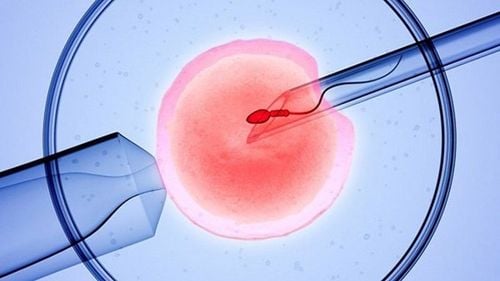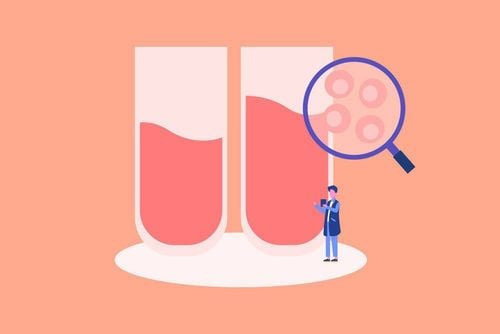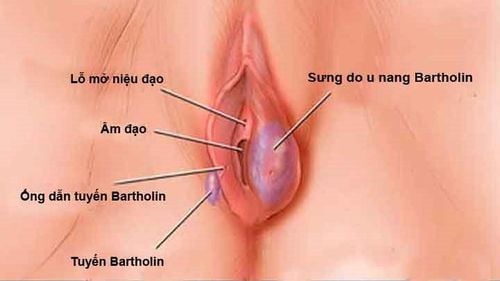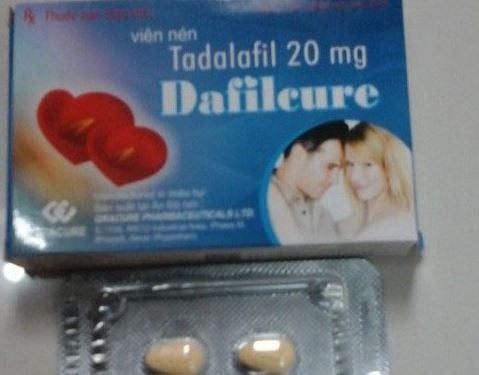This is an automatically translated article.
Hormonal disorders will cause significant effects on daily activities, psychophysiology, quality of sex life and the ability to have children. Hormone testing is something that should be done regularly.1. Male hormone test
The male sex hormone system consists of many substances, of which there are 4 main types: FSH, LH, Testosterone and Androgen. The regulation of these substances in the hypothalamic-pituitary-testicular axis system ensures normal spermatogenesis.Abnormally increased or decreased values of these hormones often indicate a disorder in spermatogenesis, affecting conception. A male hormone test is a hormone test to get an accurate diagnosis of male reproductive health.
Testosterone Test Testosterone plays an important role in sexual and reproductive health, such as: stimulating libido, increasing libido and increasing sexual pleasure.
Testosterone testing is just as simple as a routine blood test and is done in the morning when this hormone is at its highest. Sometimes, the test is repeated to more accurately assess the hormonal status in the body.
Before the test, the doctor will ask the patient to stop taking any medicine that can affect the hormone levels in the blood. Depending on your symptoms, your doctor will make an appropriate clinical examination.
Testosterone test results include: Normal testosterone levels are in the range of 300-1,000 ng/dl. If testosterone levels are low, it can affect sex drive and fertility. These include: decreased sexual interest, inability to have a penile erection, infertility, fatigue, decreased energy and interest in daily activities.
FSH test The FSH test is used to distinguish between hypothalamus and hypogonadism with or without hypothalamus.
This test is indicated for all patients with azoospermia and if no cause is found to impair spermatogenesis. However, it cannot be ruled out that the process of spermatogenesis is stopped (arrested spermatogenesis) without mature sperm.
A normal FSH value is between 2 and 12 mIU/ml. High FSH levels indicate that the testes are no longer responding to gonadotropic stimulation. The spermatogenesis process is damaged and the testicles no longer produce sperm. Low FSH is a sign of hypothalamus and pituitary gland.

Xét nghiệm FSH
2. What do hormone tests include?
Endocrine testing is done to know the functioning of the ovaries and the ability to store eggs. In addition, hormonal testing is also used to monitor follicular development and ovulation, especially to know the level of reproductive hormones, the risk of infertility caused by interference in the ovulation process or the prediction of ovulation. Inappropriate ovarian storage.Hormone testing includes the following:
Prolactin test: this is a hormone necessary for maintaining fertility in women. It inhibits reproductive hormones, specifically follicle-stimulating hormone (FSH) and gonadotropin-releasing hormone (GnRH). These hormones are needed to trigger ovulation, allowing the egg to develop and mature. If the prolactin level is high, it will affect ovulation and very easily cause infertility. Anti-Müller Hormone (AMH), produced by cells in the ovarian follicles. Levels of these hormones will indicate the ability of the ovaries to store or supply eggs in the ovaries, if the AMH level is low, the chances of infertility are high. FSH hormone, this is the hormone mainly responsible for stimulating egg production. If the FSH level is high, the ovarian reserve is low, the risk of polycystic ovary syndrome (PCOS). LH hormone (usually made on the 2nd or 3rd day of the menstrual cycle). LH (luteinizing hormone) is one of the most important hormones for reproduction. If LH levels can interfere with ovulation and the menstrual cycle, increasing the risk of polycystic ovary syndrome leading to infertility. Hormone E2 or estradiol (usually taken on the 2nd or 3rd day of the menstrual cycle). Estradiol (E2) or estrogen is a very important female sex hormone and is produced in the ovaries. The follicles in the ovaries secrete estrogen which triggers the reproductive cycle. Hormonal tests will be done when assessing fertility/infertility.
3. Evaluation of fertility/infertility by hormonal testing
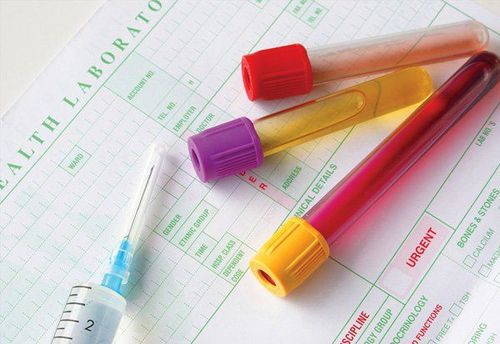
Xét nghiệm nội tiết bằng cách đo nồng độ nội tiết qua huyết thanh
For accurate examination and advice, couples can go directly to the fertility support center at Vinmec Times City International Hospital. Vinmec Reproductive Support Center is the leading modern center in Vietnam, built and applied a treatment process that coordinates comprehensive examination, combining both male and female obstetrics and gynecology to offer the optimal plan for each patient. each patient case.
Vinmec is a prestigious address for health examination and fertility assessment, a center that gathers a team of leading experts in the field of obstetrics and gynecology in the country and internationally, trained at leading centers in the world. in the world such as in the US, Singapore, Japan, Australia and famous fertility centers in the world such as: Doctor, Dr. Jean Clement Sage, Master, Doctor Le Thi Phuong Lan, PhD, Doctor To Minh Huong, Master, Doctor Nguyen Ngoc Chien ....
Customers can directly go to Vinmec Times City to visit or contact hotline 0243 9743 556 for support.




